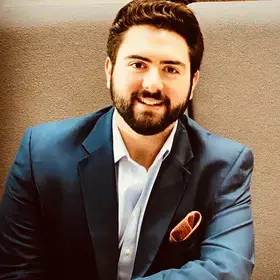What brought you to Washington, D.C.?
As I was finishing my Capstone project in November of 2012, I applied for the Presidential Management Fellows Program. In April 2013, I found out that I was accepted. This fellowship is a two-year program with the federal government, and through it, I am working with the Federal Emergency Management Agency (FEMA). I am working on national preparedness policy where part of the fellowship is deployment to a disaster area for a month and later a rotation within the Department of Homeland Security and then a longer rotation in any department of the executive branch.
In the application and interview process, did you use your knowledge from your Capstone from the Negotiation and Conflict Resolution (NECR) program?
A big part of the application process was the in-person assessment, which consisted of four features. One of them is a group exercise. One part of that assessment was a mock meeting with five other candidates where we role-played high level representatives from different federal agencies. It turned out to be a six-way negotiation for program funding in the value of thirty million dollars. I ended up winning the negotiation hands down. The next step was to present our decision on how to receive funding to the assessors who were watching the exercise the entire time. Because of my training in negotiation at Columbia, I not only knew how to present my decision through a methodical presentation but I also knew how to maintain a calm demeanor during the exercise. We did so much of this in class that this was not new to me. I was very aware during the assessment how much my training at Columbia helped me.
How do you use your skills in your day-to-day tasks?
I work on national policy to ensure that the documents and the programs that FEMA produces are going to connect well with the public, and I have to use the negotiation skills. Facilitating trainings is lacking, particularly in my office, and it’s something we are trying to address. So the fact that I have those skills and can use them helps me stand out and helps me be successful.
I would also like to mention one thing that surprised me. When I started working at FEMA, there was another fellow near my office who was starting work in a project with some already existing issues. She was not sure how to go about it but she had heard that I might be able to help her so she reached out to me. I ended up using the Dynamical Systems Theory and Conflict Mapping on her project. We started mapping out different events and stakeholders and looked at various structural holes. It was a good moment for me to use my NECR knowledge and to be able to help out my colleague. It was nice to know that this has a practical application at my work.
Why did you choose NECR?
I did research before I decided to pursue my Master’s degree. I looked at few programs around the country, their requirements and locations to see what events and people I would be exposed to. Of course, New York City is a great city in general, so I attended the NECR info session. I also attended Capstone presentations, and it seemed like the work that they were doing I also could do, and I would enjoy it. This was where I realized that I belong in that program. I know I made the right choice.
What advice do you have for students entering the first year of the NECR program?
First, be an active participant in the program. Participate in as many events on campus as possible. When I was there, I wanted to know everything I could, so I participated in different events around campus, and all of that really helped me. There is so much you can learn at NECR and in New York City, and I wasn’t going to let those opportunities pass me by. And through these activities I was able to get the internship at the Department of Justice and then at FEMA. All of these are tied together.
Second, use your degree by showing a clear line of logic. Try to have conversations with your professors and Capstone advisors and the program director to learn how to use the NECR knowledge in your professional pursuits.


